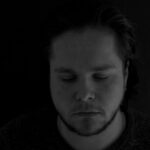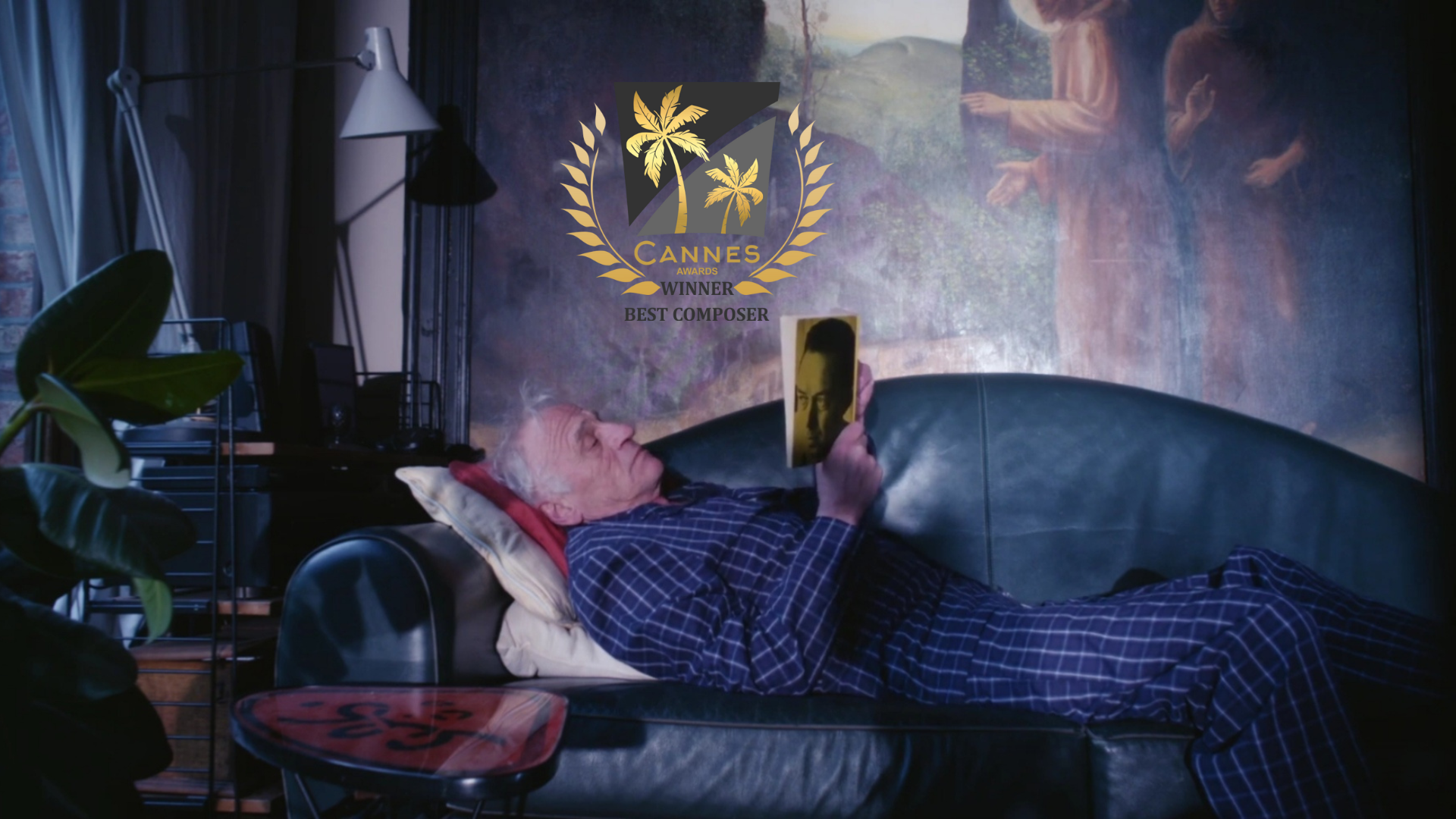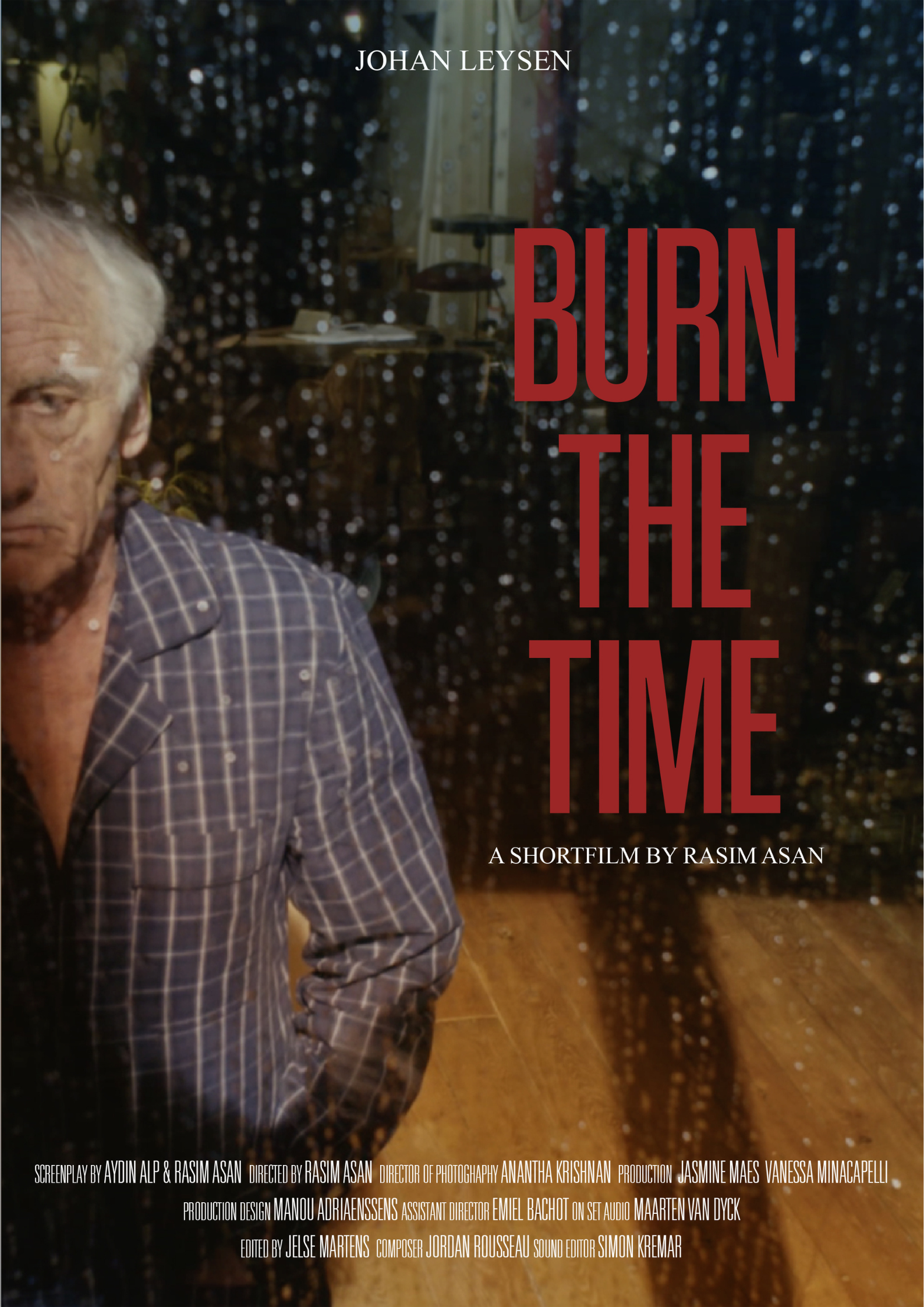Jordan Paul Rousseau
How did you start your film composing career?
It was a friend of mine who actually studied cinematography here in Belgium. She always knew I was playing in bands and she said, “Look, I’m doing my Bachelor’s degree in film. Would you be interested in scoring my picture?” I was like, “Yeah, why not? My band sucks anyway.” I got a taste for it. and ever since, I haven’t stopped composing for film.
What are your favorite primary instruments?
I mainly use this small set up of synthesizers and MIDI orchestra. There’s not much budget when it comes to scoring for orchestra and that kind of stuff when it comes to indie productions.
So I tend to have a small budget for things like a string ensemble or a small choir. Everything else, I fill it with piano and drums and guitar thanks to my band background. My style came out of necessity, to be honest.
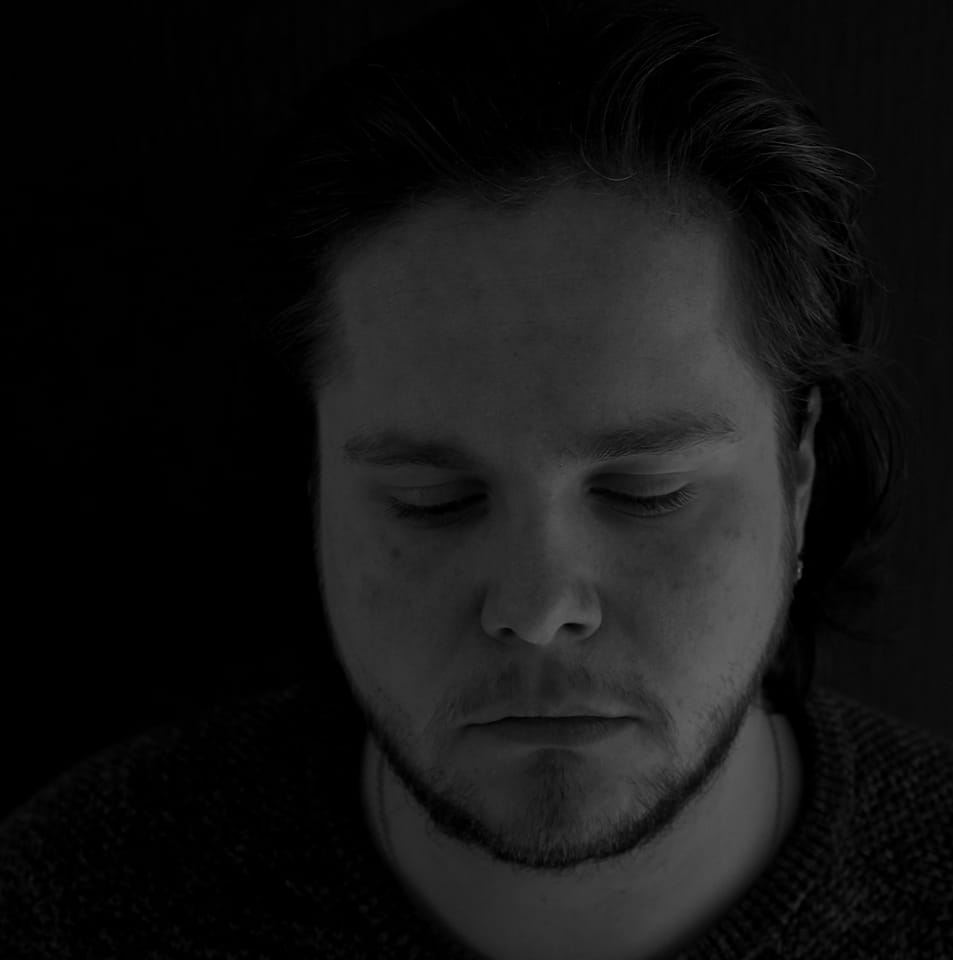
Do you have any favorite film scores or musicians that influence your music today?
Do you have a week? Yeah, so many, I think. Trent Reznor, followed by Jóhann Jóhannsson, who passed away, sadly enough. Johnny Greenwood has been on my list ever since he did, ‘There Will Be Blood.’ I recently discovered Nick Cave and Warren Ellis. I like to write music for soundtracks and I’ve been obsessed with their work ever since.
What is your creative process for sound design compared to film scores?
When it comes to sound design, I really start looking around for sounds. I will start rubbing everything, like hitting everything, it’s more texture. And I’ve noticed that. It works both ways that I took elements from the sound design, into my new soundtracks.
It’s less melody based and more texture based, so it works both ways. They influence each other a lot. But that is the main difference that I have to imagine. There’s a lot of overlap with textures, colors, etc.
“Sometimes friends call me the method actor of composers”
– Jordan Paul Rousseau | Cannes Award-Winning Film Composer
What are your biggest challenges as a composer?
I think finding a constant money flow and paying gigs.
I’ve been networking a lot at film festivals lately ever since the soundtrack I composed. It brings me certain new projects, but most of the time, the projects I have are from old connections I had with people. I composed music for that student movie a year ago now and they’ve graduated and they’re doing their first feature film.
I do sound design for fashion design ads, music and videos. On the side, I’m a music teacher as well. It’s actually really nice to write music and/or do the sound design. It’s a nice break from the regular routine of composing.
It keeps me inspired in a way. It kind of mixes it up.
How many film projects do you compose for in a given year?
I think right now, as of today, I’ve composed 12 films since January. I’m just a nut when it comes to that kind of stuff. When a script inspires me, I go crazy. Sometimes friends call me the method actor of composers because I would go lock myself up in my studio and where it’s really dark I’ll live like a nomad somewhere to create.
What is your creative approach for composing film music?
I always start from the ideas of what the main sound, what is the main texture of the main character and what is the primary emotion. I like to find the instrument first. I want to have a sonic fingerprint of that certain character before I write a melody. I’ll take the instrument out of the closet and play an ‘F’ for example, you will still know it’s that character, even though it’s not the main theme. So I try to do it that way first and then I try to score a main theme.
What are some of your career goals as a film composer?
I think my main goal is to work together with the film production company, A24. That’s my main goal. I’ve loved every movie they’ve produced the last couple of years.
What advice would you give to new composers starting out?
It’s very blatant, but it’s not about you, even though the music is a big part of the film. It’s not about you. Don’t take it personal.
When a director says, “Your piece of music doesn’t fit there.” It doesn’t mean that your piece of music is shit or you are shit. It just means that it’s not the right thing at that moment. Just know that fact it’s not about and you’re building a story for somebody else.
Resources
- Jordan’s Composer Profile
- Burn The Time (Cannes 2022 Award Winner – Best Composer)
- A24 Films
Full Audio Transcript
How did you first get into film composing?
It was a friend of mine who actually studied cinematography here in Belgium, in Brussels. And she always knew I was playing in bands and she was like, look, I’m doing my Bachelor’s degree in film. Would you be interested in scoring my picture? And I was like, yeah, why not? My band sucks anyway, and I did it. I got a taste for it. And ever since, I haven’t stopped composing for film.
And ever since, I’ve been writing music for I think two years now.
What are your favorite primary instruments?
I mainly use this small set up of synthesizers and MIDI orchestra. Because there’s not much budget when it comes to scoring for orchestra and that kind of stuff when it comes to indie productions.
So I tend to have a small budget for things like a string ensemble, for example, or like a small choir, but then everything else, I fill it with piano and drums and guitar thanks to my band background. My style came out of necessity, to be honest.
Do you have any favorite film scores or composers musicians that you know influence how you’re composing music today?
Do you have a week? Yeah, so many, I think. Trent Reznor, followed by Jóhann Jóhannsson, who passed away, sadly enough. Johnny Greenwood has been on my list ever since he did, There Will Be Blood. And then recently I discovered Nick Cave and Warren Ellis. I like to write music for soundtracks and I’ve been obsessed with their work ever since.
What are your career goals as a composer? What are you looking to do in the future?
I think my main goal is to work together with like, The production company, A24, that’s like my main goal. I’ve loved every movie they’ve produced the last couple of years.
What do you see as maybe your top challenge as a composer at this point in your career?
I think finding a constant money flow and paying gigs.
What have you done if anything, to kind of solve for that, like you are networking at film festivals. Is that kinda your main way of getting opportunities?
Yeah, I do actually. I’ve been networking a lot at film festivals lately. Ever since the soundtrack I did. And it brings me certain new projects, but most of the time, the projects, new ones I have are like old connections I have for people. I did that student movie like a year ago now and they’ve graduated and they’re doing their first feature film.
So then they come to me, so it’s like old connections. Those are most of the projects I do, but there are the newer ones. Like come from film festivals indeed.
I do sound design for fashion. Doing fashion design for ads, music videos, etc. On the side, I’m a music teacher as well. And now it’s actually really nice to write music and/or do the sound design. It’s a nice break from the regular routine of composing.
It keeps me inspired in a way. It kind of mixes it up.
What is your creative process for sound design, as opposed to maybe what your creative process is for the compositions that you score for film when it comes to like for film?
When it comes to sound design, I really start looking around for sounds. I will start rubbing everything, like hitting everything, it’s more texture. And I’ve noticed that. It works both ways that I took elements from the sound design, into my new soundtracks.
And it’s less melody based and more texture based, so it works both ways. They influence each other a lot. But that is the main difference that I have to imagine. There’s a lot of overlap with textures, colors, etc.
In your opinion, what makes you stand out from some of the other composers and musicians out there.
I think my love for synthesizers, and texture maybe. I use a lot of textures and my stuff is very minimal. It’s very like, like I said, Trent Reznor, Philip Glass inspired. So it’s very minimal. It’s very analog as well. I use digital instruments as well from time to time.
I like to keep it analog as possible. It’s a really difficult question. If I say synthesize, it’s not actually that true. Cause I mean, Trent Reznor does the synthesizer stuff and Hans Zimmer does the synthesizer stuff. What’s interesting to me is the sound design element of it.
I think the sound design aspect of it makes me unique, cuz when it comes to me, I know I like my soundtrack, but it’s missing something, you know?
And then all of a sudden I got the new rough cut with sound design from the sound designer. I was like, that’s what’s missing, you know, my work needs that sound design and I like the marriage of both worlds. I like to work with sound designs, like to know what they’re doing before I start writing stuff.
And my standalone soundtrack where I then release online, always has the element of texture to it. So yeah. I think the sound design element is a big one.
So how many films, compositions or pieces of music do you write in a given year?
I think right now, as of today, I’ve done 12 since January. I’m just a nut when it comes to that kind of stuff. When a script inspires me, I go crazy. Sometimes friends call me like the method actor of composers, cuz I would go lock myself up in my studio and where it’s really dark I’ll live like a nomad somewhere to create.
How do you approach each project differently in terms of composition? Is it the same approach, musically, as far as developing the idea and the melodies and things like that, or does it really depend on each project and what inspires you in the picture that you’re seeing?
Yeah, it is the same, because I always go from the idea, like, what is the main sound? The main texture of the main character or the main emotion? I like to find the instrument first. I wanna have a sonic fingerprint of that certain character before I write a melody, take the instrument out of the closet and play an F for example, you will still know it’s that character, even though it’s not the main theme. So I try to do it that way first and then I try to score a main theme.
What advice would you give to new composers starting out?
It’s very blatant, but it’s not about you, even though the music is a big part of the film. It’s not about you. And don’t take it personal. When a director says like, your piece of music doesn’t fit there. It doesn’t mean that your piece of music is shit or you are shit, it just means that it’s not the right thing at that moment. Just know that fact it’s not about and you’re building a story for somebody else.
Are you a music composer?
Join the composer community by quickly creating your free Compozly profile Create my account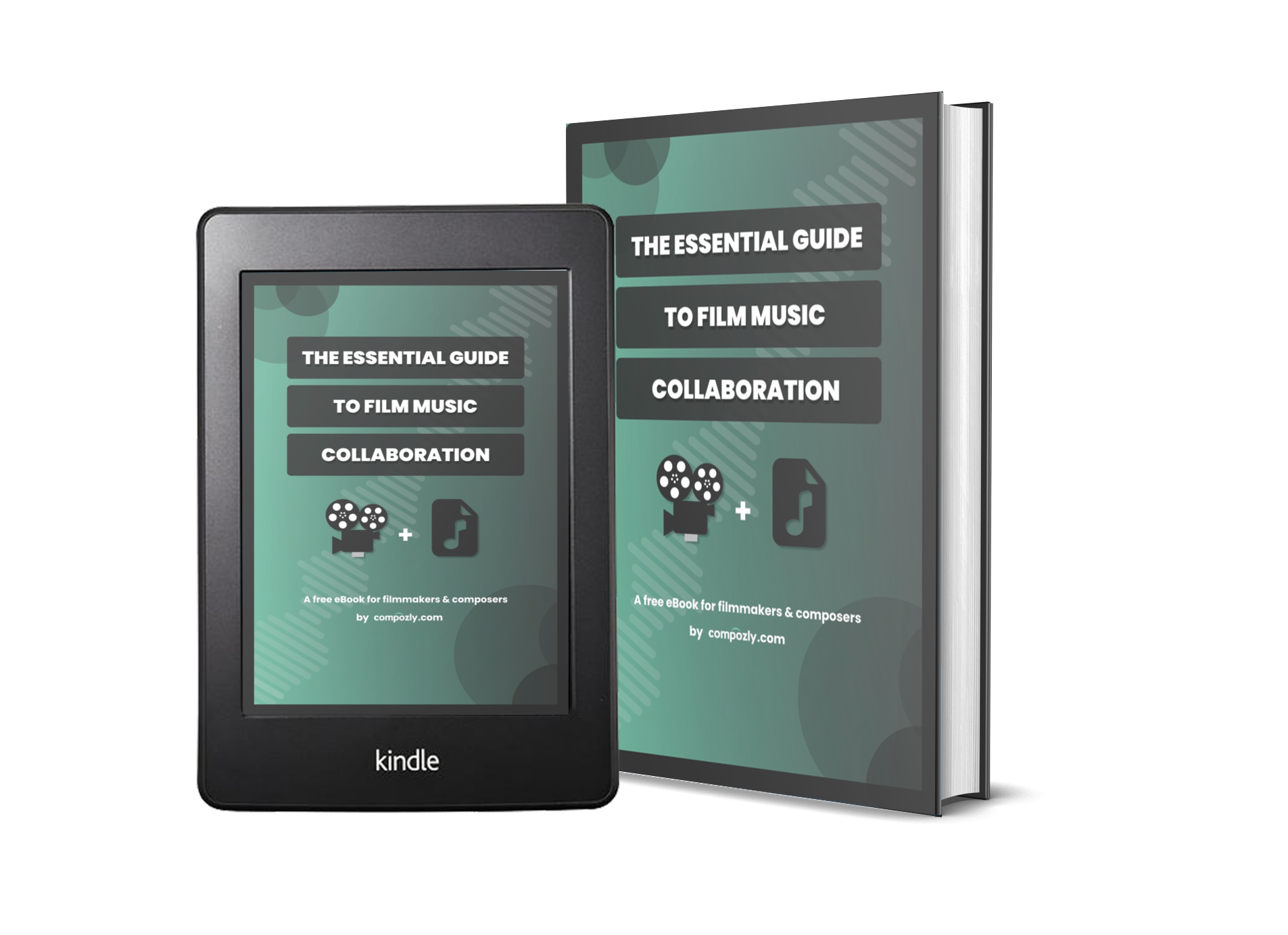
Get your FREE copy of "The Essential Guide to Film Music Collaboration" to help create better music for your film and video projects.
© 2025 Compozly, LLC ALL RIGHTS RESERVED

